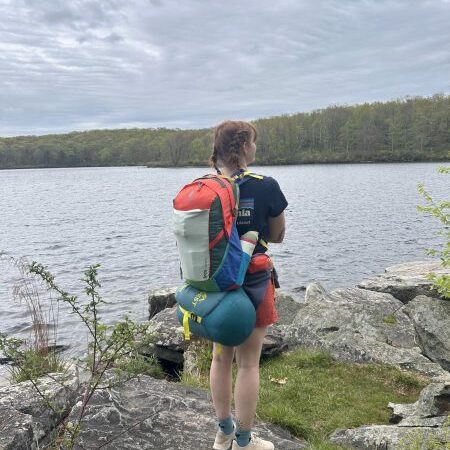Breaking the Law
“Never let go of the brake strand,” I firmly told a student for the third time in less than a minute. Just before we started the exercise, learning how to rappel, I heavily emphasized the importance of never letting go of the brake strand. What I don’t mention is if they were to let go, it would be a quick test to make sure the belayer is paying attention. I also don’t mention one of the next skills they will learn is how to secure a rappel device so they can go hands-free. They’re about to learn how to do what I told them they must never do.
Every child, I imagine, is told to never cut toward themselves. Yet, when you were taught how to peel an apple, you probably learned how to hold the knife in four fingers, using your thumb to carefully pull the blade through the apple’s skin and toward your own. Using caution and patience, we usually peel the apple and not ourselves, even whilst breaking The Rule.
My first time on a whitewater raft, I was taught that if I fell out of the boat, I was to assume the “Lawnchair Position”: lie supine in the water, feet facing downstream, toes out of the water to avoid entrapment. But on the first day of my swiftwater rescue class, we learned the aggressive swimming position, where you’re on your belly, feet trailing behind, with your hands leading the charge.
Student SCUBA divers are taught to NEVER hold their breath. If you held your breath and ascended, perhaps as little as five feet, the increase in pressure could cause permanent lung damage. Then, on my first dive trip, our Divemaster sank to the ocean floor and held his breath while two cleaner shrimp gave him a quick once over.
Though the rules in these stories are presented as an absolute, they are a simplification. Someone on their first rappel sees a 35-foot drop as a void, an immediate threat to their life. While they struggle to trust their life to a harness and rope, they aren’t in a good headspace to be told the various ways to stop rappelling and go hands-free. Terror grips them tighter than they grip the rope; they are, through no fault of their own, unlikely to understand what you’re trying to tell them. Hopefully, someone gave good instructions while they were still capable of rational thought.
Similarly, someone experiencing their first descent of a rapid, sans boat, is doing very well if they don’t choke on the water and avoid total and complete panic. If they decide to take up boating as a hobby, there is plenty of time to learn the fine points of whitewater swimming once they’re more comfortable with “out of boat experiences.”
Some people see absolute statements, such as “always,” “never,” and “only,” as fallacious. While I do find statements of that nature to be inaccurate to some degree, when we’re introducing someone to a new sport, it’s good enough. One of my instructors is fond of the phrase “never ever except for when.” We can start with the “never ever,” the best practices for the majority of likely situations. There’s no need to immediately overwhelm someone with the “except for when.” All babies must learn to crawl before they learn to run.
If you have a very thorough knowledge of why a rule exists, and an alternative means to the same end, then maybe you can consider a little rulebreaking. In the rappelling example, the reason you never let go of the rope is to prevent an uncontrolled descent. Tying off your rappel device is another way to maintain control.
Now, a word of caution: trying to deconstruct the rules is a great way to fall victim to the Dunning-Kruger effect. Should your knowledge be incomplete, you may pay a hefty price. Experienced, competent instructors and mentors can guide you through the murky waters, as you learn not everything you’ve been taught is completely true.
Occasionally, someone has to find out how deep the rabbit hole goes. One day, they’re being told “NEVER let go of this,” and years later, often after a few drinks and a friendly debate, they start designing tests and doing science. Instead of being told what the rules are, they’re figuring out what the rules should be.
The rabbit hole has no end. How far will you go?
The post Breaking the Law appeared first on Wasatch Magazine.





